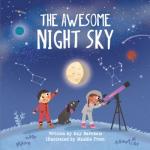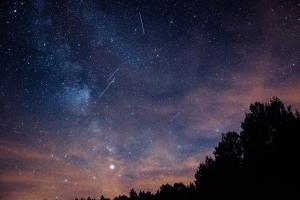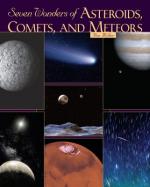
Did you know that Michigan is home to six protected Dark Sky Preserves? Additionally, Michigan is home to Headlands International Dark Sky Park and Dr. T.K. Lawless Park, which are the only internationally designated park preserves in the state. While each location provides the very best opportunity for you to truly enjoy the Milky Way, aurora borealis and more - you do not need to travel to these places to Observe the Night Sky. You can begin your adventure at home by simply keeping a few viewing tips in mind.
- The Best Place for Stargazing (In the World) Is Your Backyard
- Consider checking out one of our many astronomy resources and e-resources to help you identify constellations and enhance your experience.
- If you would like to find out more about what you are seeing, consider watching the short youtube series Learn the Night Sky.
- Know when significant events are happening, like the Perseid Meteor Shower on August 11 & 12, with the 2021 Guide to Meteor Showers, Supermoons in Michigan and The 10 Must-See Night Sky Events in 2021 and International Asteroid Day on June 30.
Activities:
- NASA at Home has activities for the whole family.
- Visit a Michigan Dark Sky Preserve - Many have activities throughout the summer! Some of these preserves participate in the Michigan Activity Pass (MAP) program. Library patrons can access hundreds of participating institutions by visiting the Michigan Activity Pass website to print or download a pass to their mobile device.
- Get creative with Creativebug! For an activity you can do with your kids there is Astro Origami class, for adults there is Zodiac Necklace class. (CPL card required)
Resources:
In this gentle science series, World of Wonder (4 titles), the youngest readers are given the fundamental ideas and language needed to grapple with our world's natural wonders. Each title begins with activity suggestions before a series of colorful, full-bleed spreads break the topics down into digestible tidbits--one short paragraph per page--incrementally building readers' understanding of the subject. The Awesome Night Sky tackles astronomy, touching on aspects that will already be somewhat familiar to children, like the sun, moon, other celestial bodies, and the scientific tools human used to study it all. Vocabulary terms are underlined in the text and collected in a glossary. While photography is absent, Frost's inviting illustrations give the perfect context for each lesson, and two omnipresent white children anchor the education in friendly companionship. Effective in balancing simplicity with the right selection of details, these make excellent science primers for early readers.


